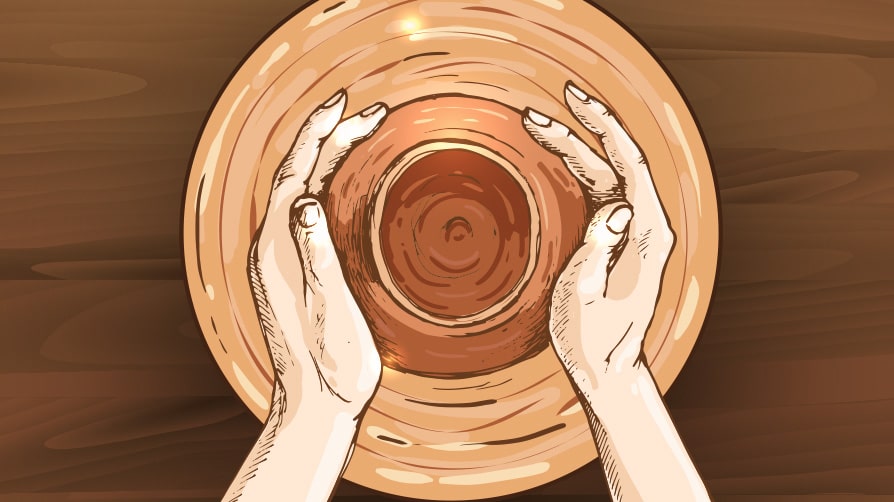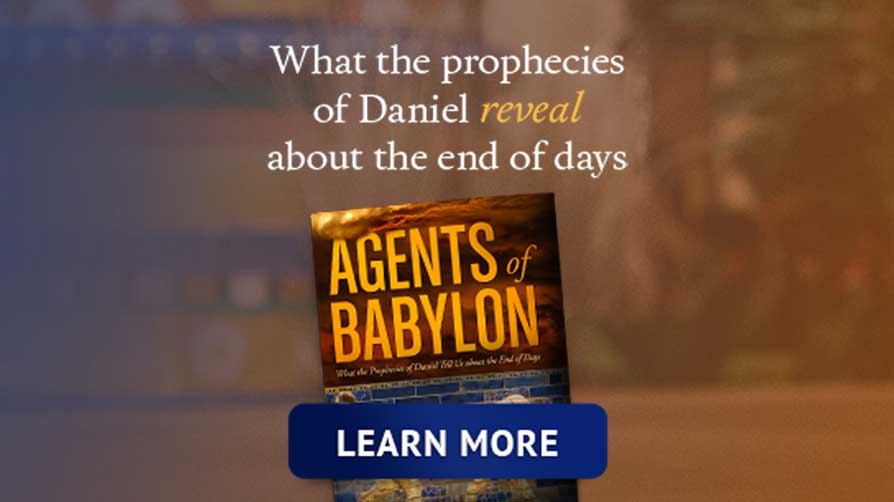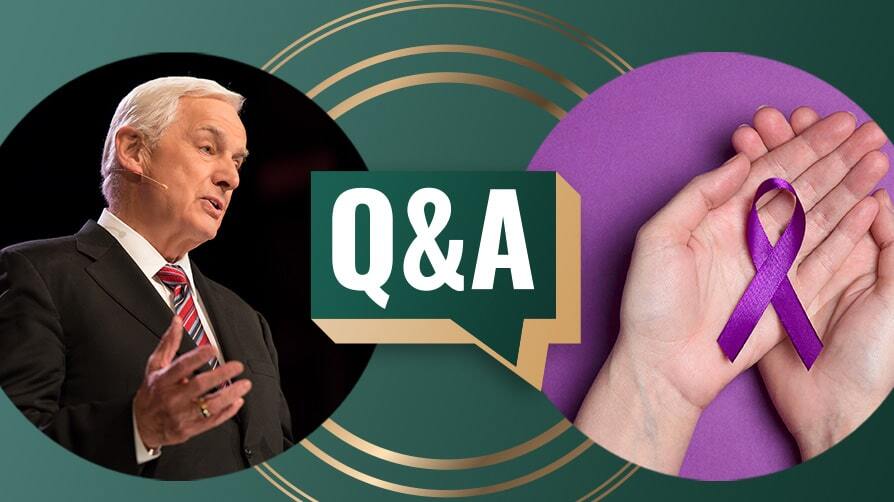I need help

Your response has been received, and we will be praying for you.
Look for answers to some of the most common questions in the weeks ahead.
Culture shock is usually something experienced by individuals who move from one place to another. But increasingly, those of us who uphold traditional Christian values are experiencing culture shock without leaving home. The decadence is defeating. People think they want a permissive culture where anything goes. But it comes at a cost, and multitudes are struggling to cope with the turbulence caused by their own moral choices. Everywhere we turn, people are facing culture shock.
Where is God in all this? Where are you? How can we cope with today’s decadence? How can we turn the tables and shock people with grace? As never before, people need culture shock treatment—an answer to the confusion, chaos, despair, pain, and loss of a society facing septic shock.
They need to see Jesus.
{ms_advert_4_box}Confusion: An Opportunity to Meet the God of Truth
Jesus came to represent His Father to a chaotic culture, and we can learn a lot about the Father by noticing the biblical phrase, “The God of….” Several times, for example, the Bible speaks of the “God of truth.” Moses said, “He is… a God of truth” (Deuteronomy 32:4).
The reason we’re in a mess is that we’ve rejected the truth.
The reason we’re in a mess is that we’ve rejected the truth—even the very concept of truth—and that leads to confusion. Jeremiah Johnston wrote, “It does not matter what the atheist (or nihilist) professors claim. Human beings are spiritual beings. God’s fingerprints are placed on every human heart. We hunger for the spiritual and when we’ve cast God out the door, when we ridicule and mock the Christian faith and replace it with odd, even diabolical, paranormal hocus pocus, we become entrapped.”1
Peter put it well in John 6:68: “Lord, to whom shall we go? You have the words of eternal life.” That’s a question for our times. When you feel confused by the culture, turn to the unchanging truth of God’s Word; and keep His words on your lips, always ready to share Scriptures with someone needing a word from the God of Truth.
Chaos: An Opportunity to Meet the God of Peace
Our culture is also in chaos, which provides an opportunity to introduce people to the “God of peace.” Paul told the Romans, “The God of peace will crush Satan under your feet shortly.” He told the Philippians, “The God of peace will be with you.” He told the Thessalonians, “Now may the God of peace Himself sanctify you completely.”
Recently a report surfaced of a young woman in Ukraine who was confused and in great despair. Walking along a channel, she planned to drown herself. A breeze blew a leaf into her face. Snatching it and looking at it, she saw it was a leaf from the book of Psalms, which had been ripped out of a Bible. She read about the God of mercy and peace, and through those words, she received Jesus as her Savior.2
The best shock treatment in the world is a leaf of truth from the God of peace.
I’m reminded of the old song that says, “The answer, my friend, is blowing in the wind.” The winds of chaos are leaving people in shock, but the best shock treatment in the world is a leaf of truth from the God of peace—perhaps a Scripture you distribute.
Despair: An Opportunity to Meet the God of Hope
Our world is also shocked with a sense of despair, but there’s a treatment for that too. Romans 15:13 says, “Now may the God of hope fill you with all joy and peace in believing, that you may abound in hope by the power of the Holy Spirit.” Our world worships many gods—the god of money, the god of sex, the god of fame, the god of power, the god of pleasure. But none of them can be called the “God of hope.” Only our God deserves that name.
I know you’re tired of politicians, courts, and media pundits who keep pushing our world further from God. But I have a theory. It’s all going to lead to a level of personal despair that will drive many people back to the Lord, so we’ve got to stay hopeful. The Bible says, “Sanctify the Lord God in your hearts, and always be ready to give a defense to everyone who asks you a reason for the hope that is in you” (1 Peter 3:15).
If we’re hopeful, we’ll be helpful. We’ll be able to administer the culture shock treatment of hope in the name of Christ.
Pain: An Opportunity to Meet the God of Comfort
The Bible also uses the term “the God of comfort” to describe our Lord. He “comforts us in all our tribulation,” says 2 Corinthians 1:4, “that we may be able to comfort those who are in any trouble, with the comfort with which we ourselves are comforted by God.
When I’m overwhelmed by the evil I see around me, I turn my eyes to God. I remember Jesus. I remember the Cross and the Resurrection. I meditate on His reign and His sovereignty. That comforts me so much. I’m able to comfort others. And that’s the way to provide culture shock treatment to those around you. We comfort others with the comfort we receive as we see Jesus.
Loss: An Opportunity to Meet the God of Heaven
We can also help people in times of loss. Seven different books of the Bible use the phrase “the God of heaven” to describe our Lord. Psalm 136:26 says, “Oh, give thanks to the God of heaven! For His mercy endures forever.”
We’ve lost a lot in our day. We’ve lost our moral bearings and our societal roots in biblical truth, and those losses make other losses intolerable. When someone without God loses a loved one, for example, they’ve lost that loved one forever.
Christ came to introduce us to the God of heaven.
But that’s why Christ came—to introduce us to the God of heaven.
Imagine what Christ faced as He entered our world. Talk about culture shock! One day He was robed in light on the throne of glory, and the next day He was wrapped in swaddling cloths in a pile of hay.
“For you know the grace of our Lord Jesus Christ, that though He was rich, yet for your sakes He became poor, that you through His poverty might become rich” (2 Corinthians 8:9).
Jesus inserted Himself into our culture to represent the God of heaven. He is still inserting Himself into the culture through you and me. As difficult as we find these days, they provide opportunities for helping others see the Savior. And He Himself is the best culture shock treatment in the world.
Focus on Him. Find time each day for quiet reflection, Bible study, prayer, and meditation on the God of truth, the God of peace, the God of hope, the God of comfort, and the God of heaven.
Find ways of engaging the culture on this basis. Look for those who are confused, chaotic, hurting, facing despair, mourning loss. Remind them that God is with us in the midst of a chaotic culture, and we need to see the Savior as He works here among us.
Look for places to volunteer that will bring your path across those needing help. Be proactive. Get involved. Share your faith. Distribute Scriptures. Show up at evangelistic rallies. Invite others to Gospel meetings. Don’t be afraid to ask your friends how you can pray for them. Put your hand on someone’s shoulder and say, “God loves you, and so do I.”
It may shock them, but that’s the kind of culture shock they need.
“May the God of hope fill you with all joy and peace as you trust in Him, so that you may overflow with hope by the power of the Holy Spirit” (Romans 15:13, NIV).
This article originally appeared in the February 2016 issue of Turning Points devotional magazine.
Sources:
1Jeremiah J. Johnston, Unanswered (New Kensington, PA: Whitaker House, 2015), 126.
2“A Torn Page from God’s Word Becomes a Life Preserver,” http://blog.gideons.org/2012/08/testimonies–of–how–gods–word–has–prevented–suicide/.
{ms_advert_7_row}
Certain Hope in Uncertain Times
As heard on Turning Point Radio with Dr. David Jeremiah
Throughout March, we will continue Making Sense of It All as Dr. Jeremiah shares timely messages from his series Living With Confidence in a Chaotic World. Together, we will conquer fear and find hope!
Listen to his latest message here and join the conversation!
We often trust what we see, know, or feel—and that can be dangerous. Writing in Discover Magazine, Douglas Starr says that while eyewitness testimony is a mainstay of justice, it’s not all that trustworthy. “According to hundreds of studies over the past 30 years, there is almost nothing less reliable than what an eyewitness thinks he saw,” he wrote. “Memory is not videotape. We may believe that we remember things precisely, but most of our memories are a combination of what we think we observed and information we have been exposed to since then. The situation becomes worse at crime scenes, where variables such as stress and the presence of a weapon interfere with accuracy.”1
Starr points out that “of the 297 cases that have been overturned by DNA evidence in the United States, more than 70 percent were based on eyewitness testimony.” The eyewitnesses didn’t mean to mislead the jury; they simply didn’t remember the facts as accurately as they thought they did.
What happens when we feel like chaos has ensued, and there’s no way to manage the circumstances? What about unexpected disasters? What happens when our eyes see bedlam around us? We panic, trying to control things that are beyond our means. We may even lash out at the One who can give us understanding and guidance. But let me give you a better example—the biblical hero named Job.
{ms_advert_5_box}Job’s Character
According to the Bible, Job was a blameless man (Job 1:1). This doesn’t mean he was perfect, but others viewed him as moral and ethical, a man of integrity and character. God viewed him that way too, for in Job 1:8, He said of Job, “There is no one like him on the earth, a blameless and upright man, one who fears God and shuns evil.” In essence, God called Job the best man on earth in his time. Job was also one of the wealthiest men, with acres of livestock and an army of servants. Chief among Job’s blessings was his family—a wife, seven sons, and three daughters.
Job’s Chaos
But out of nowhere, Job’s idyllic world was shattered by chaos. Satan attacked on multiple fronts simultaneously. The Sabeans raided his fields, killed his employees, and stole his oxen and donkeys. Fire destroyed his flocks of sheep. The Chaldeans seized his fleet of camels. A cyclone blew down the house where his children had gathered, killing them all. And Job’s skin erupted in boils that afflicted him head to foot.
The poor man sat in the ashes, scraped his skin with a broken piece of pottery, and wondered what had happened to him.
If he was tempted to blame God, it didn’t show. The story of Job is that of a man whose world fell apart, yet he resisted the temptation to lash out at God. He was humble and believed God was in control. Job 1:20 says, “He fell to the ground and worshipped.” He could have fallen to the ground in despair or in complete collapse; instead, he fell to the ground in worship.
Job’s Cry
But he did fall to the ground. He didn’t just sing “Count Your Blessings” and give his testimony. This wasn’t a “Praise the Lord Anyway” moment. No, he was pulverized by the enormity of his losses. In time he composed a prayer. “He said: ‘Naked I came from my mother’s womb, and naked shall I return there. The LORD gave, and the Lord has taken away; blessed be the name of the LORD.’ In all this Job did not sin nor charge God with wrong” (Job 1:21–22).
This is a famous passage in the Bible, and I don’t know how many times we’ve heard it intoned in the movies when someone dies in a drama. It is often spoken at the graveside while the star of the show is scanning the faces of the mourners looking for the real killer. Very often it’s raining.
But this isn’t really a movie script; it’s the song of a tortured but trusting heart. Few of us will lose our families, our wealth, our associates, and our health all at the same time, yet Job’s cry is helpful whatever our reversals in life. “Naked I came from my mother’s womb, and naked shall I return there.” That reminds us of 1 Timothy 6:7–8: “For we brought nothing into this world, and it is certain we can carry nothing out. And having food and clothing, with these we shall be content.”
This is the logic in both the Old and New Testaments. We’re only in this world a while, and we’re here on assignment. Our goal is not the accumulation of things. Our goal is to be content and frugal as we serve the Lord. When we have good days, we thank God for them; and when we have bad ones, we trust God with them; and on both days, we say, “Blessed be the name of the Lord.” We worship. This was Job’s first declaration of praise, and it’s a good philosophy for all of us to adopt in times of stress and strain.
Job’s Comfort
How do we cultivate such a response? Two places. The first is by meditating on our Lord’s creation. I don’t have time to tell the whole story of Job or of his friends and their accusations and advice. But at the end of the book, the Lord spoke to Job out of the whirlwind and took him on a creation tour. He asked Job, “Where were you when I laid the foundations of the earth?” (Job 38:4) He told Job to consider the stars of the sky (38:7), the waters of the sea (38:8– 11), the sun and moon and rain and snow (38:12–30). He showed Job the wild animals, each one differently and wonderfully formed (38:39 – 39:30). What about the wild goats, Job? Who helps them bear their young? What about the ox? Who gives it strength? What about the ostrich and stork, the horse and the hawk?
As Job meditated on the wonders of God’s creation, his perspective clarified. If God can manage the courses of the stars and the flight of the birds, He knows how to care for us. Jesus later used a variation of this teaching to remind us to notice the lilies of the field, which are far more wonderful than the blossoms at the beginning of this article. The same God who clads the flowers can help us, for we are more valuable than acres of lilies and birds.
“What I am doing, you do not understand now, but you will know after this.” John 13:7
The second place to find comfort is by meditating in God’s Word. In terms of a written text, Job had little if any divine Scripture. Some scholars believe the book of Job was the earliest of the books of the Bible. This man didn’t have the Law or the Psalms or the Prophets, much less the New Testament.
But we do. We have Psalm 11:4: “The Lord is in His holy temple, the Lord’s throne is in heaven.”
We have Habakkuk 3:19: “The LORD God is my strength; He will make my feet like deer’s feet, and He will make me walk on my high hills.”
We have John 10:28: “I give them eternal life, and they shall never perish; neither shall anyone snatch them out of My hand.”
We have Romans 8:31: “If God is for us, who can be against us?”
In a way, the entire book of Job can fit into just one verse in the Gospels—John 13:7: “Jesus answered and said to him, ‘What I am doing you do not understand now, but you will know after this.’”
We don’t always understand our situations, but we can always lean on our Savior. We can’t always trust our eyes, for we walk by faith and not by sight. Things aren’t always as they seem; they are seldom as bad as they seem. Even eyewitnesses get it wrong. Meditate instead on the wonders of God’s creation and on the truths of His Word. Move from your confusions to His conclusions. There is no chaos when we’re in His keeping, for life’s unexpected problems are no match for God’s limitless power. His promises and His presence will reassure you that He is still in total control.
This article originally appeared in the July 2015 issue of Turning Points devotional magazine, a ministry of Turning Point with Dr. David Jeremiah.
Sources:
1Douglas Starr, “False Eyewitness,” Discover Magazine, September 26, 2012, http://discovermagazine.com/2012/nov/04–eyewitness.
{ms_advert_8_row}Suppose you made a million dollars per year. Would that set you up for life? Would it give you financial security for the future? Well, apparently not if you’re a professional athlete. According to a report in Investment News, 78 percent of NFL players are bankrupt or under financial stress within two years of retirement. Sports Illustrated similarly reports that 60 percent of NBA players are in serious financial trouble within five years of retirement.1
Knowing what some professional athletes make, we’re astounded to learn that many of them will end up struggling to pay their bills within a few years of their last game. How can that be? The two biggest culprits, according to the reports, are divorces and joblessness.2 Many former athletes also cite the social pressures of trying to sustain a luxurious lifestyle. Others fall prey to friends and family members wanting them to invest in unwise ventures. And then there are the crooks. John Elway invested millions of dollars with a hedge fund manager who, as it turned out, was running a Ponzi scheme.
It’s not enough to have a job that simply takes care of today’s needs.
It’s not enough to have a job that simply takes care of today’s needs. Somehow we need to manage wisely for the future. King Solomon drew a lesson from the lowly ant, “which, having no captain, overseer or ruler, provides her supplies in the summer, and gathers her food in the harvest” (Proverbs 6:6–8).
In ancient Egypt, Joseph wisely stored up grain for the coming days of famine. In Proverbs 31, the wise woman was a hard–working manager who provided for her family and wasn’t worried about winter. She prepared for the coming seasons in advance. Jesus commended the shrewd steward in Luke 16 for using his current position to ensure a secure future.
{ms_advert_2_box}Nothing Can Pry Us From His Hand
Many of today’s companies offer retirement, investment, and insurance benefits that help ease our minds regarding the future. One insurance company even uses two upturned palms to assure us that we’re in good hands when we’re in their care. Yet we know by hard reality there’s not much security in our world or its economy. We don’t know what a day will bring forth. Riches can disappear in a moment. Jobs vanish. Savings and investments can turn sour. Stocks decline. Economies crash. As Proverbs 27:24 says, “Riches are not forever, nor does a crown endure to all generations.”
As Christians, we don’t depend on the world for ultimate security.
As Christians, we don’t depend on the world for ultimate security. For us, the eternal God is our refuge, and underneath are the everlasting arms. We have a hope that endures, for when Jesus comes into our lives, He comes with abiding security. He not only died to forgive our sins; He rose from the dead to give us eternal life. His resurrection supplies the power, provision, and pattern for our own resurrections. Because He lives, we will live also.
John’s Gospel drives this home. At the end of his Gospel, John stated his purpose in writing it—that we might believe in Christ and have eternal life (John 20:31). He similarly ended his little letter of 1 John by telling us he had written it that we might know we have eternal life (1 John 5:13). Throughout his writing, John used the phrases “eternal life” and “everlasting life” 23 times. For example, Jesus told us in John 10:26–29: “My sheep hear My voice, and I know them, and they follow Me. And I give them eternal life, and they shall never perish; neither shall anyone snatch them out of My hand. My Father, who has given them to Me, is greater than all; and no one is able to snatch them out of My Father’s hand.”
The future just doesn’t get any more secure than that!
Nothing Can Separate Us From His Love
Not only can nothing snatch us from His hand; nothing can separate us from His love. The apostle Paul declared: “Who shall separate us from the love of Christ? Shall tribulation, or distress, or persecution, or famine, or nakedness, or peril, or sword?” He went on to say, “I am persuaded that neither death nor life, nor angels nor principalities nor powers, nor things present nor things to come, nor height nor depth, nor any other created thing, shall be able to separate us from the love of God which is in Christ Jesus our Lord” (Romans 8:35, 38–39).
Bill Bright, founder of Campus Crusade for Christ International, observed, “My experience in counseling thousands of students and laymen through the years since I met Christ personally has convinced me that there are literally tens of thousands of good, faithful church–goers who have received Christ in prayer, but who are not sure of their salvation.”3
How different the attitude of the apostle Paul! He exclaimed, “I know whom I have believed and am persuaded that He is able to keep what I have committed to Him until that Day” (2 Timothy 1:12). He had a hope that infused his days with optimism. There weren’t any insecurities with Paul, even when he was facing execution. He was convinced. He knew. He was persuaded. And no one could tell him otherwise.
Nothing Can Alter His Plan
The Bible also teaches that nothing can alter God’s plan. Ecclesiastes 3:14 says, “I know that whatever God does, it shall be forever. Nothing can be added to it, and nothing can be taken from it. God does it, that men should fear before Him.”
Our Lord is the same yesterday, today, and forever. He is immutable—unchanged, unchanging, and unchangeable. His grace doesn’t fluctuate. His power doesn’t ebb and flow. His love and mercy don’t rise and fall with the tides of any cosmic ocean. He is steadfast, constant, and enduring. The Bible says, “The Lord is good; His mercy is everlasting; and His truth endures to all generations” (Psalm 100:5).
Our Lord is steadfast, constant, and enduring.
What security and hope! What a basis for an optimistic attitude, even during painful times. And how wonderful to know we don’t have to fear the future or worry about our security.
In his book, How to Begin the Christian Life, George Sweeting suggests that doubting our salvation is like a prisoner who has been pardoned by the governor. A guard brings him the document, and there it is, signed and sealed. Suppose you ask the man, “Have you been pardoned?” he will say, “Yes.”
“Do you feel pardoned?” we ask.
“No, I don’t. It’s all so sudden.”
“But if you don’t feel pardoned, how do you know you are pardoned?”
“Oh,” the man replies, “it tells me so right here.”4
The Bible does not use vague or nonspecific language regarding our salvation.
The Bible does not use vague or nonspecific language regarding our salvation. It doesn’t use terms like maybe or might or hope–to–be. It says will and shall and is. If you struggle with knowing for certain that you’re going to heaven, you can ARM yourself with assurance in three ways, using the acronym ARM:
A = Ask yourself: Have I sincerely asked Jesus Christ to forgive my sins? Am I trusting His blood for eternal salvation? Have I received Him as my personal Savior and Lord? If not, it’s essential to do so today, for today is the day of salvation.
R = Realize that doubting your salvation is questioning God’s faithfulness to His promises. Lewis Sperry Chafer wrote, “When God has made an unconditional declaration of His faithfulness, it is hardly becoming in one of His children to entertain any uncertainty in those things which He has promised.”
M = Memorize one of the verses cited in this article, meditate on it whenever you are fearful, and rest in the promises of God’s Word.
Nothing can separate us from His love. No one can snatch us from His hand. Nothing can alter His plan. We’re as secure as secure can be, as hopeful as the brightest promises of God, and as blessed as the richest soul.
Let’s start enjoying our eternal life today!
This article originally appeared in the May 2011 issue of Turning Points devotional magazine.
Sources:
1Paul Wachter, “Pro Athletes, Amateur Money Managers,” Bloomberg Businessweek, October 7, 2010, accessed on January 19, 2011.
2Davis D. Janowski, “Scouting Report: Finding Pro Athletes,” Investment News, January 16, 2011, at <http://www.investmentnews.com/article/20110116/REG/301169985>, accessed January 19, 2011.
3Bill Bright, How To Be Sure You Are a Christian (Campus Crusade for Christ, 1972), 5.
4Adapted from George Sweeting, How to Begin the Christian Life (Chicago: Moody Press, 1970), 106. Sweeting’s version is a close rendering to a similar passage in R. A. Torrey’s How to Succeed in the Christian Life (Chicago: Moody Press, u.d.), 24.
{ms_advert_5_row}David Hemery was a member of the 1968 British Olympic team that competed in the Games in Mexico City. He was scheduled to run the 400–meter hurdles race against a group of runners that included the world record holder. In fact, five of his competitors had clocked faster times than he did in the 400–meter hurdles. And trying to breathe easily at an altitude of more than 7,000 feet above sea level in Mexico City was proving to be a challenge for a sea–level Brit.
His goal was to run the race at about 90 percent exertion, saving the last 10 percent of his strength for a burst of speed near the end. Halfway through the race, he was surprised to find himself passing some of the stronger runners. Eventually, he didn’t see anyone in his peripheral vision. In the last 100 meters, he was running oblivious to everything. He didn’t hear the crowd or the footsteps of the other runners. He was simply focused on not slowing down, not relaxing for even a second, regardless of what the outcome might be.
{ms_advert_5_box}As he crossed the finish line, he didn’t know who had won the race. “Suddenly,” Hemery wrote, “I saw Peter Lorenzo, the BBC commentator, running towards me across the track. He shoved a microphone in my hand. My first comment was: ‘Did I win?’” Indeed he did, setting a new world record in the 400–meter hurdles.1
Granted, his race lasted a very short time—just over 48 seconds. To him, though, it probably seemed like a life–time. And all the time he was running, even when he crossed the finish line, he had no awareness of his victory. All he knew was that he was gasping for breath without a clue as to the outcome.
There’s a lesson for you and me in the experience of that British track star: We should not live our Christian life as if we are unaware of the victory that is ours!
Certainty of Victory
Life is full of examples of people who are “winners” without a clue. Sometimes people are living on top of natural resource reserves buried beneath their property. They are wealthy without knowing it. Or sometimes people buy raffle tickets to help a worthy cause, then lose the ticket because they never anticipate winning—and they win. In 2009, the North American Association of State and Provincial Lotteries reported that the total amount of unclaimed prizes in the United States was $496 million—just under half a billion dollars.2 That’s billion with a “b.”
But before we get too critical of folks who lose their winning sweepstakes tickets, let’s ask ourselves an even more important question: Are we claiming the victory that is ours in Jesus Christ? Do we ever wake up in the morning, in the midst of difficult circumstances, and ask ourselves, “Do I really win in the end? Am I running this race without knowing the outcome?”
We should not live our Christian life as if we are unaware of the victory that is ours!
What if the Olympian David Hemery had been shown a video of himself winning his race before he ever ran? What kind of difference would certain victory have made? Yes, he still would have had to practice hard and run hard, but the knowledge of ultimate victory would have given context to everything he did to secure the victory. The pain and difficulty of training, even the exertion of running the race, would have taken on new meaning. Certainty of victory makes all the difference in how we run the race.
As Christians, we have something no athlete has—a certain knowledge of how our race ends. We know that victory is ours. The apostle Paul said this: “Therefore I run thus: not with uncertainty. Thus I fight: not as one who beats the air” (1 Corinthians 9:26). And here’s how Eugene Peterson translates Paul’s words in The Message: “I don’t know about you, but I’m running hard for the finish line. I’m giving it everything I’ve got. No sloppy living for me!”
Given what we know about our victory, why would we ever give in to the temptation of “sloppy living”?
Victory Is Ours
The New Testament’s most powerful words about our victory over eternal death are tied to Christ’s victory over death through the Resurrection. Paul’s great chapter on the Resurrection, 1 Corinthians 15, ties our victory to Christ’s victory. If Christ wasn’t victorious over death, neither will we be. But since Christ was raised from the dead, so will all who belong to Him by faith (1 Corinthians 15:14–19).
And then Paul closes his chapter with these words describing who is not victorious and who is victorious:
So when this corruptible has put on incorruption, and this mortal has put on immortality, then shall be brought to pass the saying that is written:
“Death is swallowed up in victory. O Death, where is your sting? O Hades, where is your victory?”
The sting of death is sin, and the strength of sin is the law. But thanks be to God, who gives us the victory through our Lord Jesus Christ” (verses 54–57).
Quoting the prophets, Paul asks Death and Hell, “Where is your victory?” They have been swallowed up in our “victory through our Lord Jesus Christ.”
Dear friend, if you belong to Jesus Christ today, then victory is yours. This is your pre–race video, telling you ahead of time that you win. You win over the world, over sin, over death, and over the devil. As Dorothy Norwood sings in her great Gospel song,
Victory is mine, victory is mine,
Victory today is mine.
I told Satan to get thee behind,
Victory today is mine.
When I rose this morning,
I didn’t have no doubt,
I knew that the Lord would bring me out.
I fell on my knees,
Said, “Lord, help me please,”
Got up singing and shouting the victory.3
We know that victory is ours.
Victory by Faith
Satan wants nothing more than to convince us that we don’t have the victory, that the race is lost, that God has changed the plan. It’s when we believe those lies that we begin to let ourselves go and lapse into what The Message calls “sloppy living.”
Not only is the Bible clear that the victory is ours, but it is also clear about how we live the victory day by day: “And this is the victory that has overcome the world—our faith” (1 John 5:4). That’s another way of saying what Paul wrote in 2 Corinthians 5:7: “For we walk by faith, not by sight.” Everything in the Christian life comes back to faith: “… the substance of things hoped for, the evidence of things not seen” (Hebrews 11:1).
So—if we have victory in Christ to overcome the world, and faith is the means to that victory, we are faced with this question: How do we increase our faith? How do we keep “sloppy living” from eating away at the edges of what we hope for yet cannot see? But be careful: I’m not suggesting that you get more victory by having more faith. We have the victory because we have Christ—all of Christ! We are victorious by faith in Christ to begin with, and then we walk in that victory by faith for the rest of our life.
I hope you know me well enough to know there is not a silver bullet solution for increasing faith. We walk in victory by being faithful in the fundamentals of our faith: believing the promises of God (2 Peter 1:4), obeying the statutes of God (2 Corinthians 10:5), wearing the armor of God (Ephesians 6:10–18), and living to the glory of God in all things (1 Corinthians 10:31). Neither sin, the world, nor the devil will have any possibility of destroying the reality of victory in Christ if you walk by faith that way.
By the way—in the Gospel song, “Victory Is Mine,” it goes on to say, “Joy is mine” and “Happiness is mine.” That’s how you know you’re walking in the victory Christ has won for you—when joy and happiness in the Lord are yours. Christ has won the victory for you. Perhaps today is the day for you to claim the victory that is yours.
This article originally appeared in the November 2014 issue of Turning Points devotional magazine.
Sources:
1“David Hemery: ‘I didn’t know I had won, let alone beaten the world record.’” The Independent, 7–17–2014. https://www.independent.co.uk/sport/olympics/david–hemery–i–didnt–know–i–had–won–et–alone–beaten–the–world–record–7836933.html (accessed July 17, 2014)
2Lyneka Little, “$16.5 Million Lottery Ticket Remains Unclaimed,” ABC News, September 21, 2011. http://abcnews.go.com/Business/millionaire–iowa–seeks–16–million–ottery–winner/story?id=14565431 (accessed July 17, 2014)
3“Victory Is Mine,” by Dorothy Norwood and Alvin Darling. © Dosciusko Music, Malaco Music Co., Peertunes Ltd., Peermusic III Ltd.
{ms_advert_3_row}Recently a young, single woman quit her job in the city and moved back to her small hometown, abandoning her career and leaving a place of service in the church she had joined. When asked why, she replied, “I just got tired of eating supper alone.” No one is immune to it. Even one of the most brilliant men who ever lived, Albert Einstein, complained, “It is strange to be known so universally and yet to be so lonely.”1
In his book The Devil’s Advocate, Morris West says we need to understand that loneliness is not new. “It comes to all of us sooner or later. Friends die, family dies, too. We get old; we get sick…. In a society where people live in impersonal cities or suburbs, where electronic entertainment often replaces one–to–one conversation, where people move from job to job, and state to state, and marriage to marriage, loneliness has become an epidemic.”2
{ms_advert_2_box}Lonely in Marriage
It’s incredible to me how many spouses are lonely. Marriage, the institution God created to provide intimacy, often becomes a place of great loneliness. I received a letter from a woman who said, “My husband and I are both Christians… but my emotional needs are rarely met because he works all the time. It’s the case of two people living parallel lives but never really meeting at all. He has heard and read a little about how a husband can create a good relationship with his wife, but it must all pass over him without making an impression. I’m not going to nag. I try not to think about it. But the hurt is deep. I am a very lonely person.”
Lonely Survivors
Perhaps the loneliest people are survivors, those who live on after a loved one has died. Those who have buried a husband or wife experience a kind of pain which, I’m told, is so intense there’s nothing like it. Often, it’s a divorce that causes the survivor to be left alone; and divorce can be more painful than death, for there is an awful sense of personal rejection that goes with the loneliness.
Lonely Heroes in the Bible
Did you realize the heroes in the Bible also suffered acute loneliness? I remember reading in the Psalms on one occasion when David talked about how he felt in the aloneness of his life. “For my days are consumed like smoke,” he wrote in Psalm 102:3, 6–7, “and my bones are burned like a hearth.… I am like a pelican of the wilderness; I am like an owl of the desert. I lie awake, and am like a sparrow alone on the housetop.”
Jeremiah suffered crippling loneliness. He preached faithfully, but few heeded his messages. “Oh, that I had in the wilderness a lodging place for wayfaring men,” he wrote in Jeremiah 9:2 (Third Millennium Bible), “that I might leave my people, and go from them! For they are all adulterers, an assembly of treacherous men.” Even the apostle Paul described his heart’s loneliness in the last chapter of the last epistle he wrote. “Be diligent to come to me quickly,” he said in 2 Timothy 4:9–10, 16, “for Demas has forsaken me, having loved this present world, and has departed for Thessalonica—Crescens for Galatia, Titus for Dalmatia.… At my first defense no one stood with me, but all forsook me.”
It’s not a sin to be alone; it is not a sin to experience loneliness. It only becomes a sin when we start indulging it and when we fail to obey the instruction of the Word of God, given to help us dispel loneliness from our lives. It isn’t wrong to visit loneliness, but it is wrong to move in and let loneliness take over our lives.
Don’t just say, “Well, I’m not going to admit that I’m alone. I’m just going to accept the fact that I’m a Christian and that Jesus is always with me. I may feel alone, but I know I’m not alone, so I will just deny the feeling.” Instead, tap into three sources of encouragement God has provided when we feel the pain of loneliness.
Don’t live in denial. Admit that you suffer from seasons of loneliness and ask God to teach you how to deal with it.
1. Embrace Intimacy With God
God’s Son
Only God can solve the problem of loneliness. He created us in such a way that we have an emptiness that can only be filled by an intimate relationship with Himself. Until God is at home in our hearts, we’ll always feel incomplete; and He makes our hearts His home through the work of Jesus Christ on the cross. Christ experienced the most profound aloneness possible. As the Father rejected Him, He cried out, “My God, My God, why have You forsaken Me?” (Matthew 27:46) He was left alone so that we might never be alone. He was left alone so that our sin would be paid in full and that we could come to Him in faith, accepting what He did for us on the cross. Through Christ, God comes to live within us, filling the empty spaces in our hearts.
I’ve been watching people go through crises now for over thirty years, and I can tell you that it’s possible to know whether a person is a Christian or not just by watching their response to the difficulties of life. If we don’t have the inner strength that comes through a personal relationship with Almighty God, we’re left alone to handle the stresses and crises of life. But as F. B. Meyer put it, “Loneliness is an opportunity for Jesus to make Himself known.”
When Paul described his loneliness in 2 Timothy 4:16–17, he concluded by saying, “No one stood with me, but all forsook me…. But the Lord stood with me and strengthened me.”
He will do that for you, too.
2. Allow God’s Word to Fill Your Heart and Mind
God’s Scriptures
If you are a Christian experiencing loneliness, ask the Lord to speak to you. He will guide you if you study His Word. Search His Word for passages that reassure the lonely heart, verses like these:
- “When my father and my mother forsake me, then the Lord will take care of me” (Psalm 27:10).
- “In Your presence is fullness of joy” (Psalm 16:11).
- “The eternal God is your refuge, and underneath are the everlasting arms” (Deuteronomy 33:27).
- “I will pray the Father, and He will give you another Helper, that He may abide with you forever” (John 14:16).
- “Jesus Christ is the same yesterday, today, and forever” (Hebrews 13:8).
These are just representative Scriptures to remind us that the pages of the Bible contain all the promises we need when we feel the pain of loneliness.
3. Activate Your Network of Christian Friends
God’s Saints
Did you know that every time the word “saint” appears in the Bible, it appears in the plural because saints are not left in isolation? We are the saints of God, and we come together for mutual support and encouragement. Moments of being alone may not be a choice, but lingering in the house of loneliness is your decision. God has given us His Son. He has given us His Word. And He has given us His people. He has put us into the community of believers called the Church.
There are Sunday school classes, small groups, ministry teams, and opportunities to activate a network of brothers and sisters in the Lord. Psalm 68:6 says, “God sets the lonely in families, He leads out the prisoners with singing” (NIV). Take the initiative and seek out places to serve. Forget about your own needs long enough to meet the needs of someone else. God’s wonderful secret for victory over chronic, soul–crippling loneliness is a combination of His Son, His Scriptures, and His Saints.
For fifty years, Agnes Frazier and her husband Emit had morning Bible reading and prayer at the breakfast table. On the day he died, she went to bed thinking that she could never again start the day with devotional exercises. But the next morning, she bravely sat at the kitchen table and opened her Bible to the spot where she and her husband had quit their reading twenty–four hours before. The verse that stared up at her was Isaiah 54:5—"For your Maker is your husband.” She smiled and said, “Thank you, Lord.”
We can smile and thank God, too. He never leaves us alone—not for an instant. In His presence is fullness of joy.
Sources:
1QuotationsBook, http://quotationsbook.com/quote/24232/.
2Morris L. West, The Devil’s Advocate (New York: Dell, 1959), 334–335.
{ms_advert_7_row}






























































